Results
-
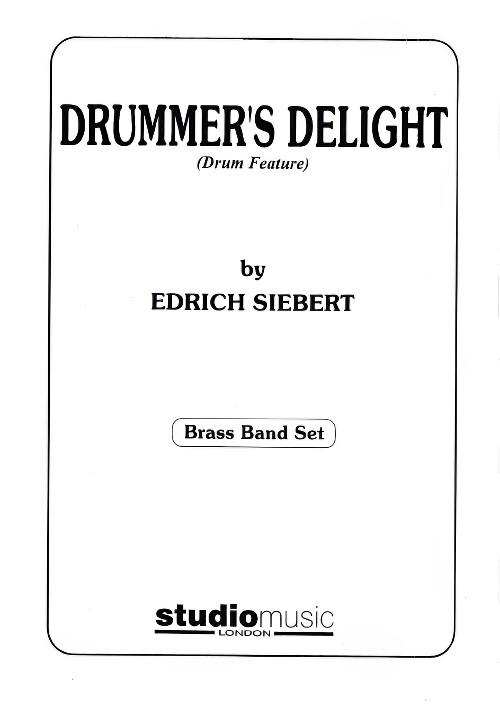 £32.95
£32.95Drummer's Delight (Drum Feature with Brass Band Set) - Siebert, Edrich
This set contains a solo cornet conductor part
Estimated dispatch 7-14 working days
-
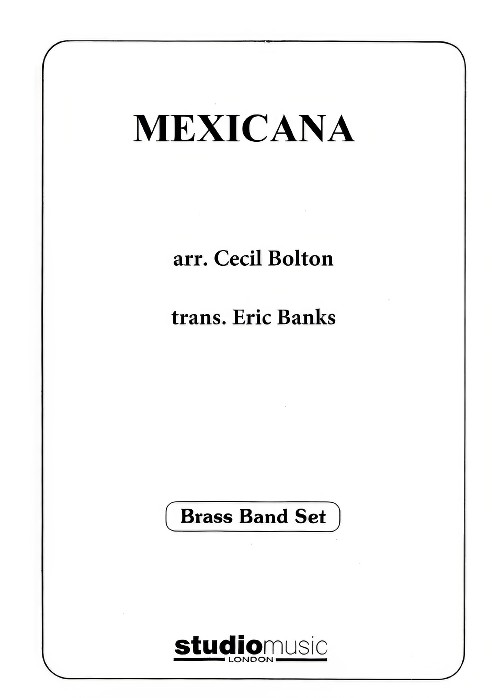 £32.95
£32.95Mexicana (Brass Band Set) - Banks & Bolton
Includes Solo Cornet Conductor part
Estimated dispatch 7-14 working days
-
 £37.95
£37.95Benvenuto Cellini (Brass Band - Score only) - Berlioz, Hector - Wright, Frank
Berlioz's opera Benvenuto Cellini was first produced in Paris in 1838 but was withdrawn as a failure, and it was not until the production in Dresden in 1888 that it was finally acclaimed by the Germans as a triumph. Adapted from certain episodes recorded in the memoirs of Benvenuto Cellini, Tuscan sculptor and goldsmith, the story, laid in Rome during the mid-sixteenth century, is not strictly historical. The short opening Allegro, marked deciso con impeto, is conceived in the most brilliant Berlioz manner, utilising full instrumentation. In the Larghetto we meet at once the first of the opera themes - the Cardinal's aria (from the last act) introduced in the bass, quasi pizzicato. A second melody leads to a resumption of the Allegro, the contrasting second subject in the tenor horns being an adaptation of Teresa's aria (Act I). Towards the end the Cardinal theme is re-introduced by trombones, fortissimo against an energetic cornet and euphonium passage (senza stringendo - without hurry, says the score). After a unison passage storming skywards, there is a sudden, dramatic three-bar silent pause broken by Eb basses alone, again stating the Cardinal theme. A simple molto crescendo on the dominant, begun piano, leads to the long, resounding chord.
Estimated dispatch 7-14 working days
-
 £82.95
£82.95Benvenuto Cellini (Brass Band - Score and Parts) - Berlioz, Hector - Wright, Frank
Berlioz's opera Benvenuto Cellini was first produced in Paris in 1838 but was withdrawn as a failure, and it was not until the production in Dresden in 1888 that it was finally acclaimed by the Germans as a triumph. Adapted from certain episodes recorded in the memoirs of Benvenuto Cellini, Tuscan sculptor and goldsmith, the story, laid in Rome during the mid-sixteenth century, is not strictly historical. The short opening Allegro, marked deciso con impeto, is conceived in the most brilliant Berlioz manner, utilising full instrumentation. In the Larghetto we meet at once the first of the opera themes - the Cardinal's aria (from the last act) introduced in the bass, quasi pizzicato. A second melody leads to a resumption of the Allegro, the contrasting second subject in the tenor horns being an adaptation of Teresa's aria (Act I). Towards the end the Cardinal theme is re-introduced by trombones, fortissimo against an energetic cornet and euphonium passage (senza stringendo - without hurry, says the score). After a unison passage storming skywards, there is a sudden, dramatic three-bar silent pause broken by Eb basses alone, again stating the Cardinal theme. A simple molto crescendo on the dominant, begun piano, leads to the long, resounding chord.
Estimated dispatch 7-14 working days
-
 £24.95
£24.95March of the Cobblers (Brass Band) - Barratt & Siebert
This set is march card sized and includes a solo cornet conductor part.
Estimated dispatch 7-14 working days
-
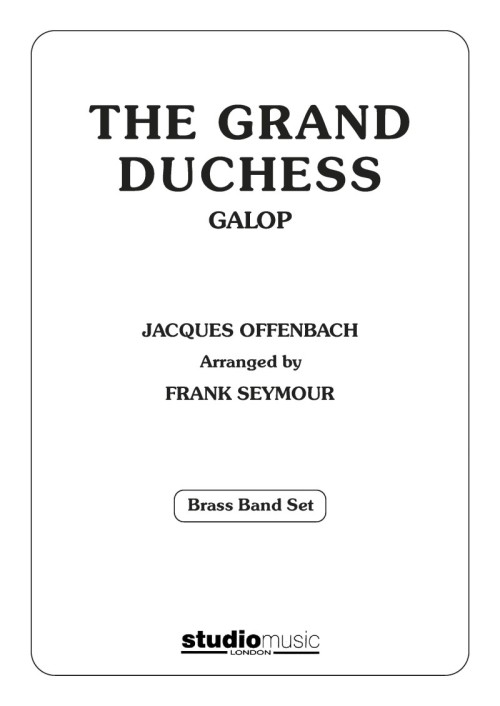 £32.95
£32.95The Grand Duchess (Brass Band Set) - Offenbach, Jacques - Seymour, Frank
Please note that this set contains a solo cornet conductor part.
Estimated dispatch 7-14 working days
-
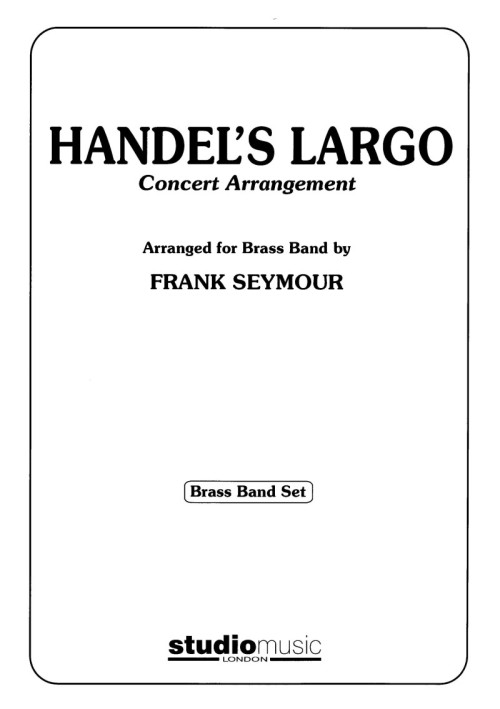 £32.95
£32.95Handel's Largo (Brass Band Set) - Handel, George Frideric - Seymour, Frank
Please note that this set contains a solo cornet conductor part.
Estimated dispatch 7-14 working days
-
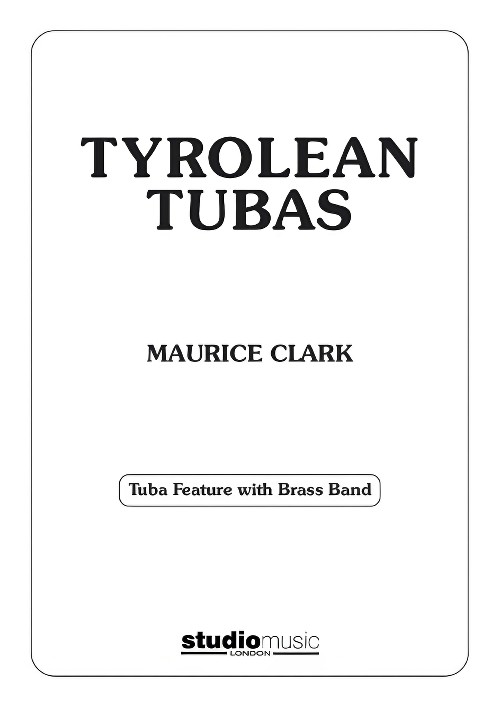 £32.95
£32.95Tyrolean Tubas (Tuba Feature with Brass Band Set) - Clark, Maurice
This set comes with a solo cornet conductor part.
Estimated dispatch 7-14 working days
-
£40.00
Excelsior (cornet solo) - Ord Hume, J
Includes a full band set (no score)
In Stock: Estimated dispatch 1-3 working days
-
£26.50
Robin Adair (cornet duet) - Hawkins, G
Also includes Ye Banks and BraesIncludes a full band set (no score)
In Stock: Estimated dispatch 1-3 working days
